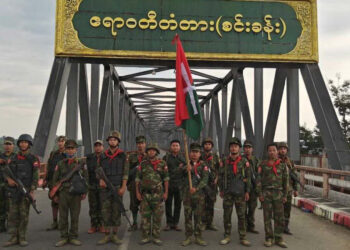GENEVA — Western powers on Friday urged Burma to hold a fair and transparent election on Sunday and pave the way for greater democracy, including citizenship for minority Rohingya Muslims.
A senior Burmese official defended the country’s record during an examination by the UN Human Rights Council, held every four years and just two days before the historic vote.
“Myanmar is endeavoring its best, like any other nascent democracy, to overcome challenges by using its resources and strength,” Attorney General Tun Shin told the Geneva forum.
“[It] is making every effort for a democratic society and the international community is expected to continue their constructive engagement and their assistance to Myanmar.”
Opposition leader Aung San Suu Kyi’s National League for Democracy (NLD) is the frontrunner in the first national election since a semi-civilian government took power in 2011 after nearly 50 years of military dictatorship.
Under the Constitution, she is banned from becoming president herself. She said on Thursday she would be “above the president” if her party won the election.
“A vote that is credible, inclusive and transparent and which represents the will of the people would stand as a lasting legacy for the government,” Britain’s Ambassador Julian Braithwaite said.
He said many concerns remained including “mistreatment of the Rohingya” and tensions between the Muslim minority and Buddhist majority. The conflict must be resolved through a political dialogue, he said.
Burma does not consider the Rohingya to be citizens, rendering them effectively stateless, while denying that it discriminates against them or that they are fleeing persecution.
“We remain troubled by forced labor, intercommunal tensions, government actions that have rendered members of the Rohingya population stateless and laws that restrict the exercise of freedoms of religion, peaceful assembly and expression,” Jessica Carl of the US delegation told the talks.
She called for the unconditional release of Burma’s remaining 100 political prisoners.
Sit Aye, presidential senior legal adviser from the office of President Thein Sein, said that the Myanmar Human Rights Commission had “investigated the complaints of torture of political prisoners and found that they were not true.”
“Myanmar is changing for the better in all sectors and with full transparency,” he said.
China’s Wang Ying praised “more positive trends” in Burma, including the nationwide ceasefire agreement agreed last month.
“The election marks another major step toward greater democracy,” she said.

















